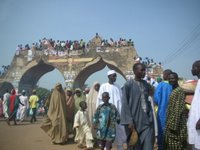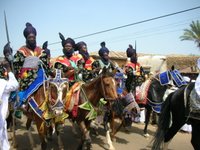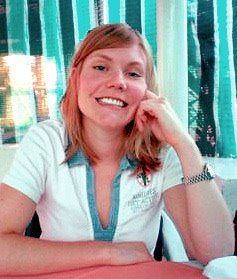Durbar: Zaria, Nigeria


Nigeria is roughly 50% Muslim, 50% Christian. The North is Muslim, the South Christian, cutting the country in half where the capital, Abuja, is located. Abuja is a new city, planned to be the capital and it reflects the complex challenge Nigeria faces concerning religious diversity. The National Mosque and the National Church are both grand and directly face each other in downtown Abuja.
Before jihad succeeded in the North a pagan festival to honor the town Prince developed entitled the Durbar. The people in the North, as many peoples from the Sahel region of Africa, were tradesmen and made their fortunes large in part due to the horses they owned. A display of vibrant costumes and horsemanship define the day-long parade and finale in front of the Emir's Palace. Today the festival coincides with the end of Ramadan and therefore has become interconnected with Islam in northern Nigeria.
Last weekend I had the opportunity to travel to a town 2 hours north of Abuja with some colleagues to see the Durbar. We arrived in Zaria just as morning prayers were starting. We quickly found ourselves in gridlock traffic as everyone abruptly got out of their cars to pray. We realized that as westerners we were going to have a difficult time parking and locating the festival. But wonders never cease in Nigeria. A young man recognized we were a bit lost and offered for us to follow him to where we could park and see the festival. We even lost him in the traffic at one point but he came back for us. First we got a street side view where we were undoubtedly the attraction until the parade started. Then he took us to the Emir's Palace to see the final running of the horses. Afterwards the man asked for no money but rather requested we come visit his family. Of course we gladly accepted knowing it would be a rare opportunity to see how many live in northern Nigeria. In the end we each offered him 1,000 Naira or the equivalent of 8$ for his family. It was a small token for the world he opened up for us that day.
The pictures above do not do the experience justice but perhaps capture some of the color we witnessed.

